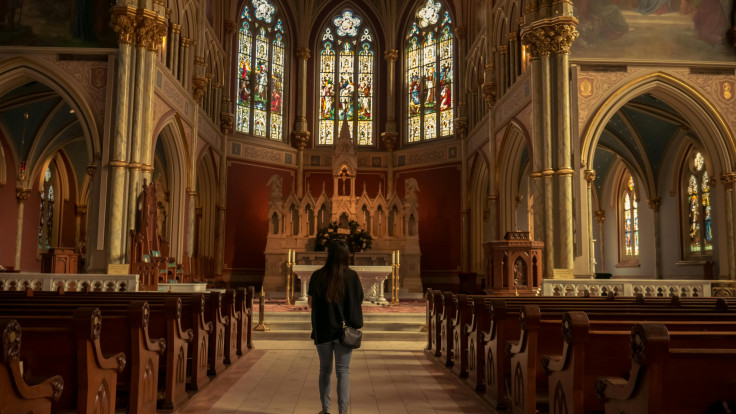
A prophecy by South African pastor Joshua Mhlakela, predicting the Rapture on 23–24 September 2025, has stirred global anxiety. Viral posts under the hashtag #RaptureTok suggests that some believers are quitting jobs, selling cars and preparing as if the end were imminent.
Rumours have also circulated in the UK and elsewhere that parents are considering withdrawing children from school or selling property. Yet so far, there is no verified evidence of any widespread disruption to institutions. Experts stress that the panic is more visible online than in everyday life and that the prediction itself lacks credible support.
How The Prediction Spread
Mhlakela, a pastor based in South Africa, told his followers he had received a dream in which Christ would 'come to take my church' on 23 and 24 September. He linked the vision to Rosh Hashanah, the Jewish Feast of Trumpets, according to reports in the Statesman.
The claim spread rapidly via TikTok, X (formerly Twitter) and YouTube, where it has been debated by both believers and sceptics. Some users have promoted the date as biblically significant, while others have dismissed it as another in a long line of failed end-time prophecies.
Panic and Real-Life Consequences
Although mainstream institutions have not confirmed widespread disruption, individual cases reported online suggest the prophecy is influencing behaviour. In South Africa, TikTok user Tilahun Desalegn said he had sold his car, claiming he 'won't need it beyond September. I'm catching a flight to heaven'.
Other users have described quitting jobs, selling belongings and even preparing 'post-Rapture kits' for those they believe will remain after the event. A report in LADbible quoted one woman as saying she had sold her house because she believed the world would 'change as we know it tomorrow'.
These examples appear isolated, but the way they are shared across social media gives an impression of wider momentum. No official data supports claims of mass school withdrawals or organised relocations in the UK or elsewhere.
Rumor is the rapture will happen tmrw 9/23/25. What if the rapture doesn’t happen? Everyone will dump n it’ll go to $0. For that reason I’m staying sidelined. If it God candles then good for those that held, but I’m not chancing it.
— Speedy 🐸🪖 (@NerinJr) September 22, 2025
Good luck! pic.twitter.com/Xy4NlVWWvU
Idk how tf this made its way onto my fyp. (Maybe it's cause I've been laughing at rapturetok.) I refuse to believe these mfs are real.😭 pic.twitter.com/mcAQSwD3fc
— Dija's a nanami x tiana enthusiast. (@beynevolent) September 22, 2025
I almost forgot today is the rapture. Apparently RaptureTok is now a thing on TikTok and people are worried about whether their pets will be able to go with. I assume only really good boys would get to go😁
— Hokkaido Dreamin'🇦🇺🇯🇵 (@dadsweb67) September 22, 2025
In case they aren’t particularly good boys there is always this… pic.twitter.com/J6BTdDu4wB
HIGH RISK GAMBLE 🎲
— fomo 🧠 (@fomomofosol) September 22, 2025
But I think this is a good narrative & meme since trenches been dry bc of $aster and bnb flood
Let’s return to solana one last time before the $rapture
Christian’s believe that the rapture is happening this Tuesday
Been seeing it all over TikTok and X last… pic.twitter.com/4uRIofjwS8
christiantok thinks rapture is happening on the 23rd, i could only think of this image pic.twitter.com/UjVRX5qCR9
— ريم (@x_a008) September 22, 2025
Has the rapture happend?
— #BlackMzungu ™ ◢◤ 🍉 (@_BlackMzungu) September 23, 2025
Is the world over?
IF YOU ARE READING THIS, YOU WERE LEFT BEHIND #christiantiktok #endtimes #Rapture #RaptureReady #rapturewatch #Rapturetok #reigon #nwo pic.twitter.com/FYbDVx1v0g
ChristianTok thinks the rapture is happening on Tuesday btw
— iconnorpop (@iconnnorpop) September 20, 2025
Experts Dismiss the Claim
Religious scholars note that attempts to predict the date of the Rapture or the end of the world have always failed. Writing in Veracity, commentator Clarke Morledge pointed out that every previous effort to set a date for the Rapture has proved incorrect.
Most Christian denominations reject date-specific prophecy, citing biblical passages such as Matthew 24:36, 'But of that day and hour knoweth no man, no, not the angels of heaven, but my Father only.'
Psychologists warn that exposure to repeated claims of imminent catastrophe can heighten stress and lead to poor decision-making. The term 'rapture anxiety' has been used by scholars, including Peggy Jones of Lessons from History, to describe the distress some believers feel when confronted with such predictions.
A Viral Phenomenon
While some individuals appear to be taking the prediction seriously, there is no credible evidence of mass panic or institutional disruption. Analysts argue that today's environment makes these rumours more potent. Social media allows fringe predictions to reach millions quickly, while global instability in 2025, from armed conflicts to climate-related disasters, creates conditions in which apocalyptic narratives resonate more strongly.
For most people, the Rapture remains a viral phenomenon rather than a theological or scientific certainty. In an era of rapid misinformation, scholars and psychologists alike stress the importance of scepticism, fact-checking and avoiding rash decisions driven by fear.







